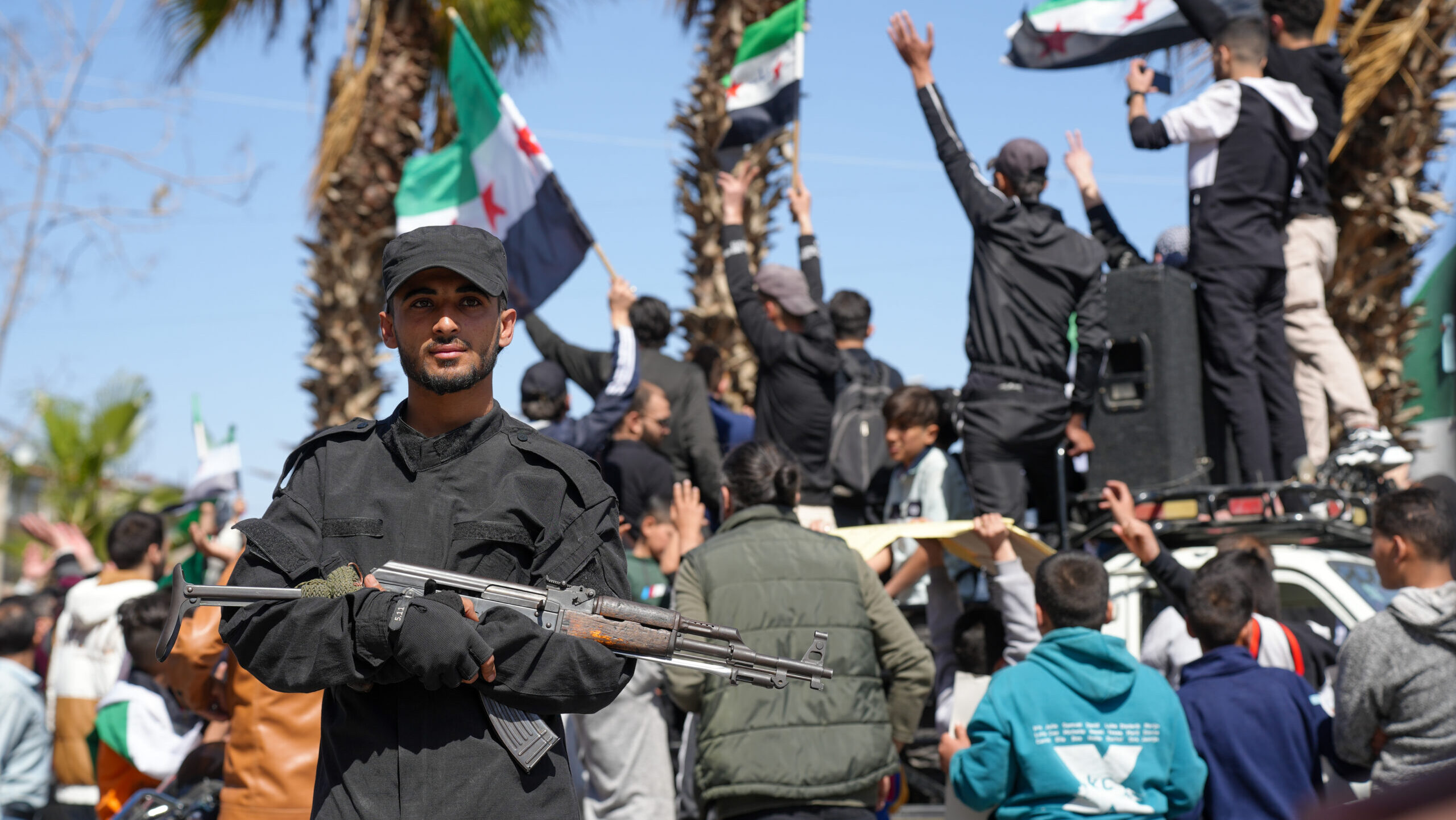In a Bid To Normalize Relations With the US, Syria Moves To Expel Armed Palestinian Groups
Syria’s largest Palestinian refugee camp is now devoid of flags associated with the armed Palestinian factions and the groups’ headquarters are shuttered, signaling a major policy reversal aimed at courting the US
[Damascus] Weeks after his unexpected meeting with US President Donald Trump in Riyadh, Syrian President Ahmad al-Sharaa has begun taking tangible steps toward normalizing relations with the United States. These measures represent a sharp turning point in Syrian policy, especially regarding Damascus’s relationship with the armed Palestinian factions backed by Iran.
Syrian authorities have informed armed factions that their presence is no longer welcome amid the state’s new direction toward calm and moderation, Palestinian sources confirmed. Although no official deportation orders have been issued, Palestinian factions supported by Tehran have faced clear pressure, with the state demanding that the factions surrender all weapons and confiscating property and buildings belonging to the factions. Several leaders and members of the groups have also been arrested.
Notable figures who recently left Damascus include Khaled Jibril, whose father founded the Popular Front for the Liberation of Palestine – General Command; Khalid ‘Abd al-Majid, secretary general of the Palestinian Popular Struggle Front; and Ziad al-Saghir, secretary general of the Fatah al-Intifada group.
In a powerful symbolic scene, flags of the Palestinian factions are now absent from Yarmouk Camp, once the main Damascus stronghold of these groups.
Yarmouk Camp is an unofficial Palestinian refugee camp, not officially recognized by the UN body responsible for Palestinian refugees. Before the war, more than 100,000 Palestinians lived in the camp, and numerous factions such as the Popular Front for the Liberation of Palestine, Fatah, Hamas, and Palestinian Islamic Jihad had offices there.
In the wake of al-Sharaa’s crackdown, those factions’ headquarters now appear to have been abandoned. Syrian authorities have reportedly confiscated all their properties in the capital and surrounding areas and arrested several of their cadres.
The Palestinian Islamic Jihad Movement announced the arrest of prominent leaders in Damascus, reflecting the shrinking political and military space for armed factions inside Syria.
Give the gift of hope
We practice what we preach:
accurate, fearless journalism. But we can't do it alone.
- On the ground in Gaza, Syria, Israel, Egypt, Pakistan, and more
- Our program trained more than 100 journalists
- Calling out fake news and reporting real facts
- On the ground in Gaza, Syria, Israel, Egypt, Pakistan, and more
- Our program trained more than 100 journalists
- Calling out fake news and reporting real facts
Join us.
Support The Media Line. Save democracy.
Syrian Defense Minister Marhaf Abu Qasra confirmed efforts to restructure the armed forces within a unified institutional framework under the Ministry of Defense. Those efforts represent an attempt to extend state control over military decision-making and bring an end to the era of armed pluralism.
The new Syrian leadership seems eager to offer clear guarantees to the United States and Israel that Syria is no longer a safe haven for violent anti-Israel factions. The US, for its part, seeks to incorporate Damascus into a new map of a US-aligned Middle East, opening the door for economic and political support. That’s on the condition that the Syrian regime fully abandons extremist groups and ceases cooperation with Iranian proxies.
President Trump’s meeting with al-Sharaa was itself a clear sign of the US’s changing stance toward Syria. During that meeting, Trump proposed that Syria join the Abraham Accords and normalize relations with Israel. It remains to be seen whether Damascus will go that far—but the decision to expel armed Palestinian factions represents a notable willingness to break with past policy and to court US approval.
Al-Sharaa’s meeting with Trump reflects deeper understandings brokered under Gulf auspices. If this path continues, we may witness a radical shift in Syria’s regional position within the next two years.
“The US no longer views Syria as a direct enemy but rather as a state that can be employed to engineer new regional balances, provided Iran’s influence is eliminated,” political analyst Sami Al-Haj told The Media Line. “Al-Sharaa’s meeting with Trump reflects deeper understandings brokered under Gulf auspices. If this path continues, we may witness a radical shift in Syria’s regional position within the next two years.”
In addition to reassuring the US administration of Syria’s break from past policy, al-Sharaa is also trying to weaken Israeli justification for continuing to strike within Syrian territory. Israeli officials have claimed that Syria has fallen into the control of terrorist groups like the Islamic State group and al-Qaida.
Expelling armed Palestinian factions may also be intended as a way for Syria to improve relations with Gulf countries. Gulf countries, especially Saudi Arabia and the United Arab Emirates, have played a prominent role in reintegrating Syria into its Arab surroundings by providing political and economic facilitation, explicitly conditional on Syria’s stance toward extremist factions and Iran.
Future Gulf support is tied to al-Sharaa distancing himself from radical rhetoric and abiding by a pragmatic approach focused on reconstruction and improving Syrians’ standard of living.
Damascus is trying to convince Washington and Gulf capitals it has left Tehran’s sphere, but the relationship with the Resistance Axis has not been completely severed yet, raising concerns that these steps might be mere tactics to gain economic and diplomatic concessions without real strategic transformations.
Iran affairs researcher Leila Khuzam noted that those conditions ought not be taken for granted. “Damascus is trying to convince Washington and Gulf capitals it has left Tehran’s sphere, but the relationship with the Resistance Axis has not been completely severed yet, raising concerns that these steps might be mere tactics to gain economic and diplomatic concessions without real strategic transformations,” she told The Media Line.



